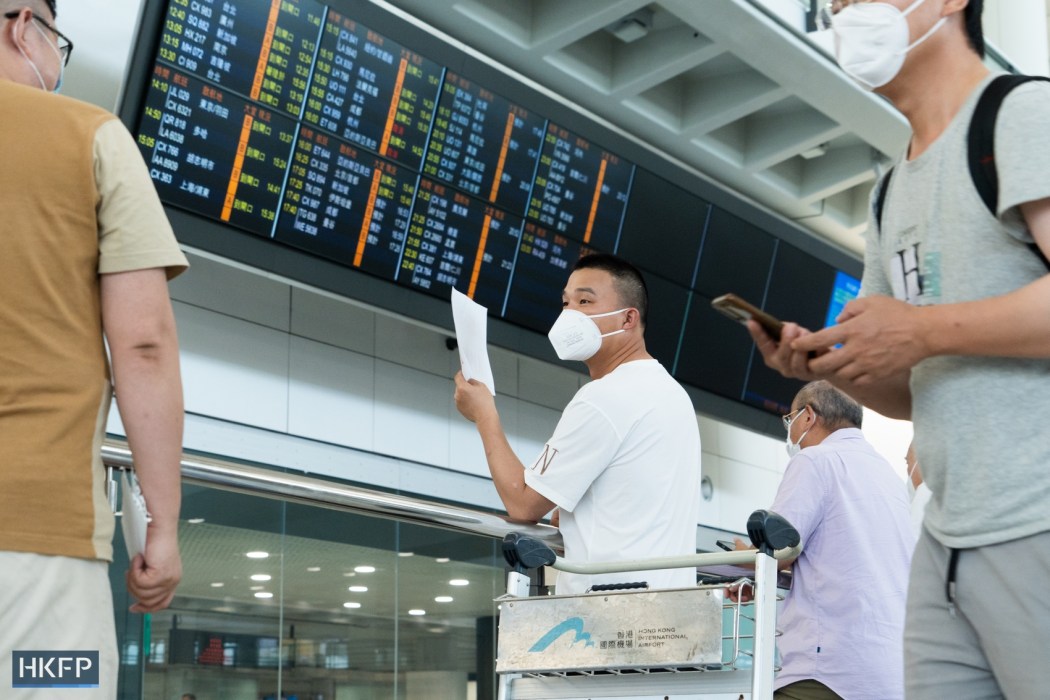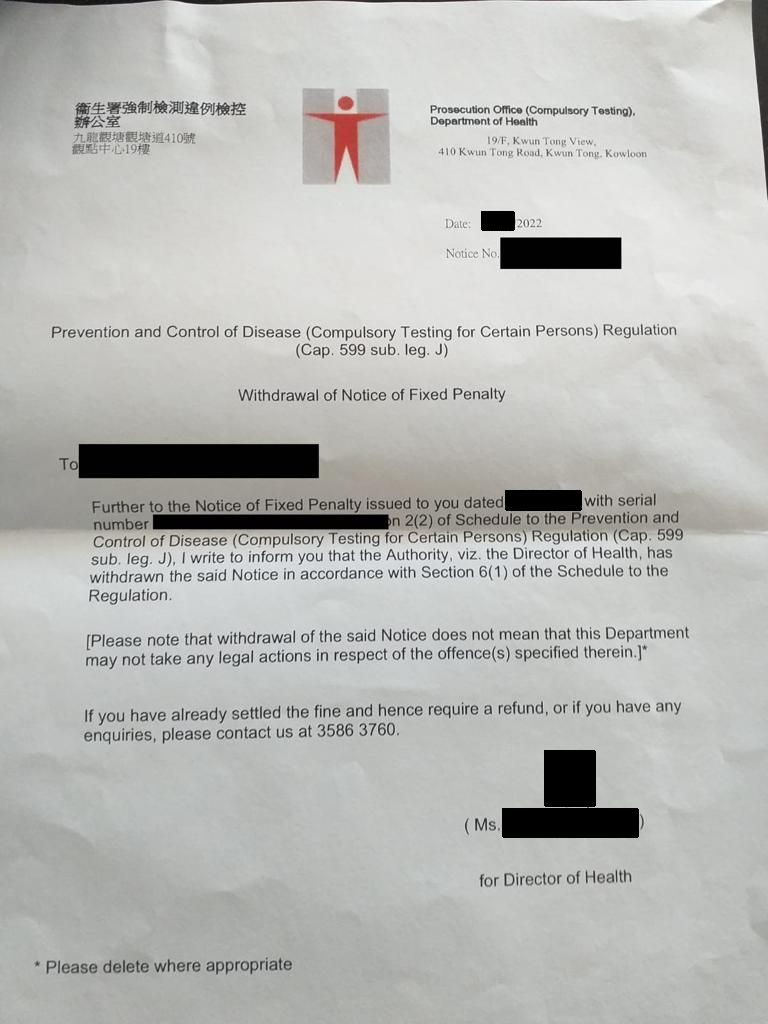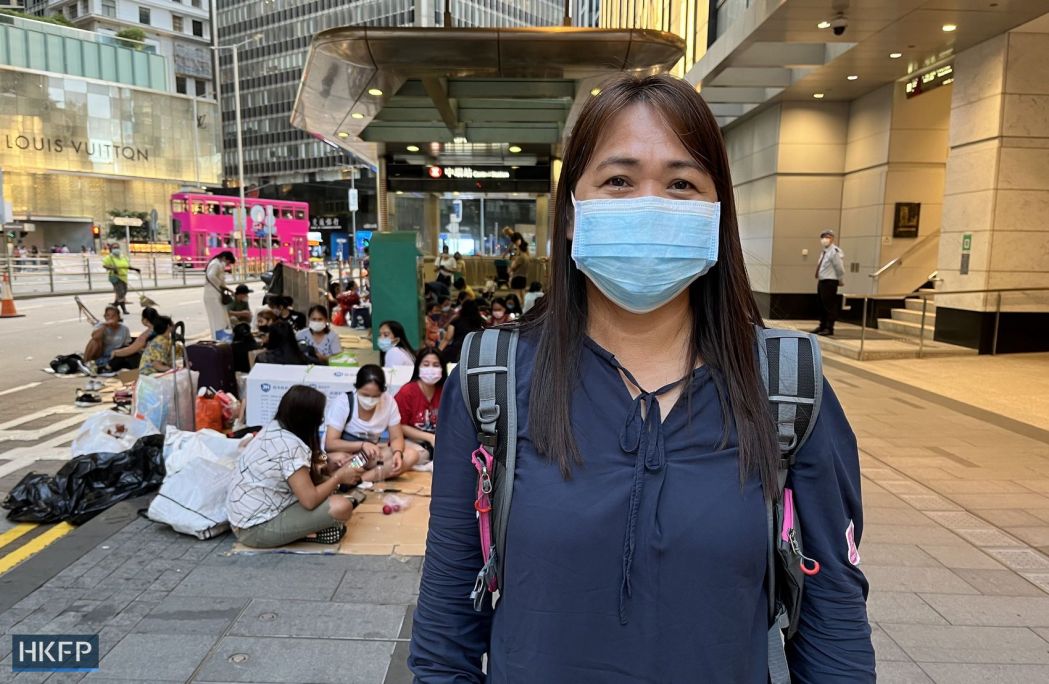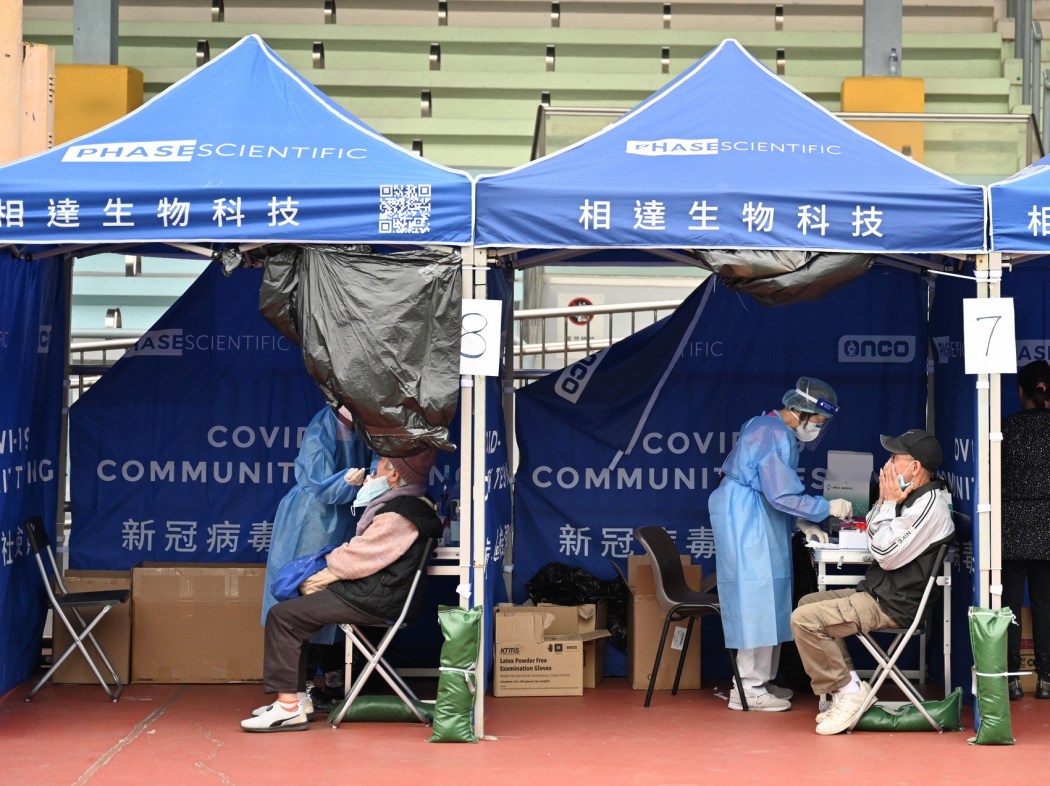When Anna, a migrant domestic worker, landed in Hong Kong in May, she – like all arrivals to the city – completed a week of hotel quarantine per the Covid-19 rules at the time.

Six days later, a friend told her she was required to have taken compulsory Covid-19 polymerase chain reaction (PCR) tests at government centres after leaving her hotel. Anna went to take one immediately, but it was too late.
In July, Department of Health officers turned up at her employer’s home with a HK$10,000 fine for missing the tests – an amount more than double the minimum monthly salary for domestic workers.
“I didn’t do the tests because I didn’t know,” Anna, who asked to go by a nickname, told HKFP. “My agency never said anything, and my employer also had no idea.”
Anna is among dozens of domestic workers in Hong Kong who have been caught up in the city’s byzantine and ever-changing measures for overseas arrivals. When she arrived in May, travellers were required to take daily Covid-19 rapid tests and two PCR tests while in hotel quarantine, as well as further PCR tests on the ninth and 12th day of their arrival.

For domestic workers, many of whom face a language barrier and – in some cases – are arriving in Hong Kong for the first time, the convoluted Covid-19 rules are only made more complicated, according to unions and NGOs that have been helping workers like Anna to appeal the fines.
The Hong Kong Federation of Asian Domestic Workers Unions (FADWU) told HKFP it had helped 34 domestic workers dispute the penalties. After communicating with authorities, the Department of Health rescinded the fines for 33 cases, while one was still being investigated.
NGO Mission for Migrant Workers said it was assisting a further 10 domestic workers who had been fined. Authorities had yet to reverse the penalties for most of them, although the fine was scrapped for one who had completed the tests but used inconsistent forms of identification – namely her passport and Hong Kong identity card – when registering.
Upon being issued the penalty, the receiver is given three weeks to pay. FADWU told HKFP that many domestic workers who had tried to appeal their fines before approaching the union had not heard back from authorities.

Responding to HKFP, the Department of Health said it had issued over 5,400 fixed penalty notices to “inbound persons for contravention of compulsory testing notices” from the start of the year until the end of September. In total, 549 fines were dismissed in the same time period.
It is unclear how many domestic workers were recipients of those fines.
Poor communication
Information about testing requirements is on the government’s websites. But the pages are wordy and difficult to navigate, said An An, the organising secretary of FADWU. Authorities also send text messages with reminders of testing dates depending on when an arrival landed, but the language is cumbersome and only in Chinese and English.
“The process is difficult for anyone who travels inbound, let alone migrant workers,” An An said.
Some domestic workers did not receive the messages because they did not have Hong Kong phone numbers. In a pre-departure health declaration form, they might have written a mobile number from their native country, while others put down their agency or employer’s number, An An added.
The declaration form does ask travellers to provide a Hong Kong mobile number or a “non-local mobile number that can receive international roaming SMS” to receive “important SMS notifications” from the government, but activists say it is difficult for new domestic workers to do so.

A domestic worker, who asked to be identified by her nickname Iche, told HKFP she arrived in Hong Kong for the first time in June and quarantined in a hotel for seven days. She did not have a chance to get a Hong Kong sim card because, as with all arrivals, she had to go straight to quarantine upon landing.
“My agency didn’t tell me I needed a Hong Kong number,” Iche said. “And the hotel [I quarantined at] didn’t remind me about the compulsory testing.”
The Department of Health did not respond to HKFP’s question about whether it had alternative communication methods for arrivals who could not be contacted.
Marites Palma, the founder of activist group Social Justice for Migrant Workers, said some employers had footed the fine for domestic workers and were deducting repayments from their salaries until they have paid it off. Hong Kong’s domestic workers earn a minimum monthly salary of HK$4,730, an amount that was increased by HK$100 last month after being frozen since 2019.

The fines, she said, aggravate the debt that many workers are in before they even begin their jobs.
“Many workers coming to Hong Kong already owe a lot of money to the agency because they have to pay a large amount before flying here,” Palma added.
Where the responsibility lies
Different parties including workers’ employment agencies, the Hong Kong government and the consulate offices of their home countries should do more to ensure that important messages reach domestic workers, unions and NGOs said.
“The agencies have to inform their employers, because otherwise they may not allow the workers to go out and take the compulsory tests,” Edwina Antonio-Santoyo, a board member of the Mission for Migrant Workers, said. “Or they may not understand the [consequence of missing] the tests.”
An An of FADWU said the greatest responsibility lies with the government. She suggested that authorities set up information booths at the airport to inform domestic workers of the rules upon landing.
“The government should print out leaflets in minority languages and give them out at the airport,” she said.

Asked how the government was addressing the language barrier faced by domestic workers, the Labour Department told HKFP it posted “relevant information” on the “FDH (Foreign Domestic Helpers) Portal,” a multi-lingual section on the department’s website that lists general information and updates relating to domestic workers in the city.
In a four-page reply to FADWU seen by HKFP, the Centre for Health Protection said when hotel quarantine was still required, hotels were tasked with distributing “reminder notes to inbound travellers upon their discharge from the hotels” stating the dates they must undergo compulsory testing. The centre added that the note was “translated into nine ethnic minority languages.”
FADWU and Palma, however, said they were not aware of hotels passing out such notes.
An An added that the cases FADWU had received were only the tip of the iceberg, saying it was possible that many domestic workers who received the fines did not have success while appealing and were unaware of where to turn for assistance.
“What we ask is for the government to drop all the fines against migrant domestic workers,” she said.
Support HKFP | Policies & Ethics | Error/typo? | Contact Us | Newsletter | Transparency & Annual Report | Apps
Help safeguard press freedom & keep HKFP free for all readers by supporting our team

HKFP has an impartial stance, transparent funding, and balanced coverage guided by an Ethics Code and Corrections Policy.
Support press freedom & help us surpass 1,000 monthly Patrons: 100% independent, governed by an ethics code & not-for-profit.










